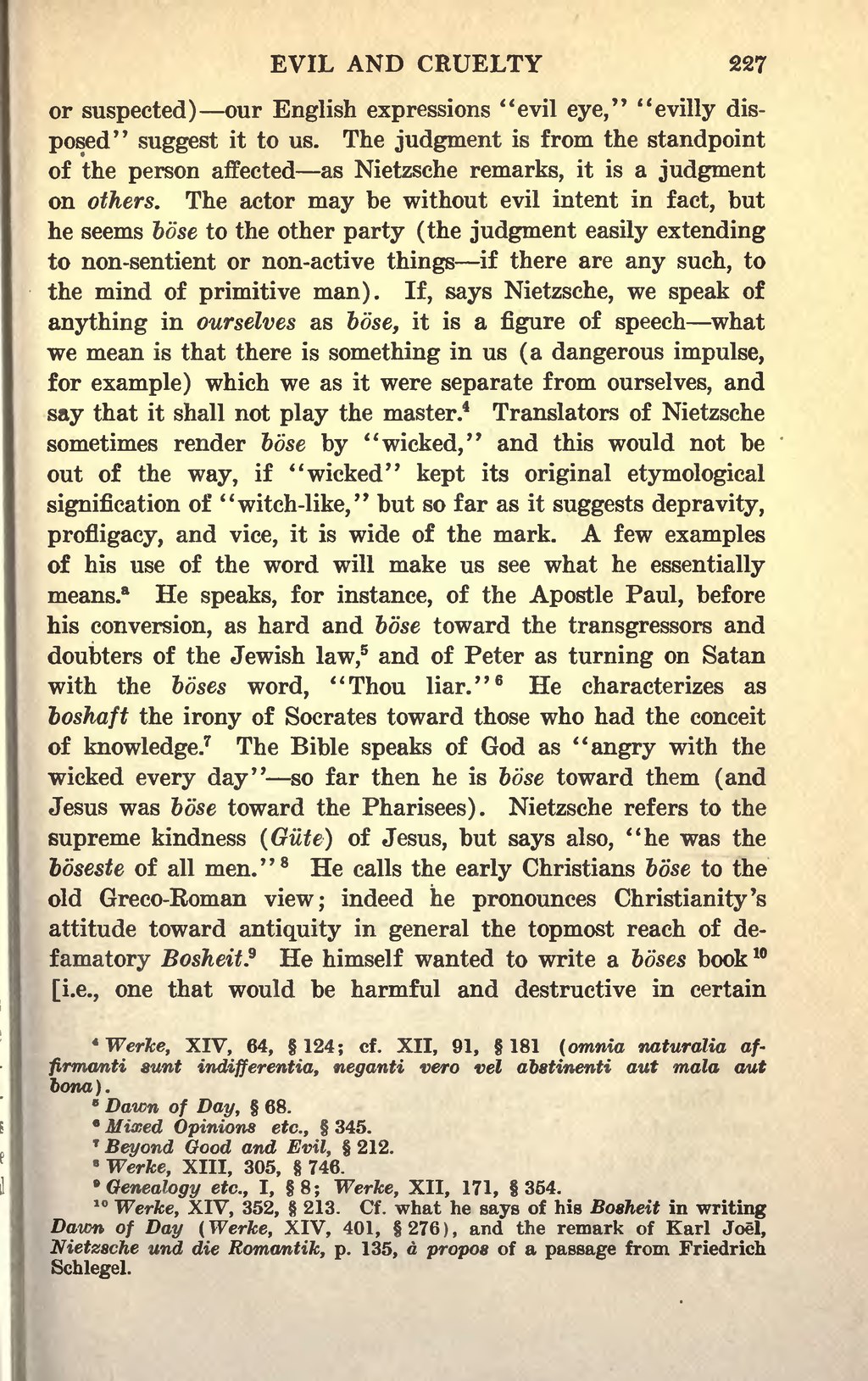or suspected)—our English expressions "evil eye," "evilly disposed" suggest it to us. The judgment is from the standpoint of the person affected—as Nietzsche remarks, it is a judgment on others. The actor may be without evil intent in fact, but he seems böse to the other party (the judgment easily extending to non-sentient or non-active things—if there are any such, to the mind of primitive man). If, says Nietzsche, we speak of anything in ourselves as böse, it is a figure of speech—what we mean is that there is something in us (a dangerous impulse, for example) which we as it were separate from ourselves, and say that it shall not play the master.[1] Translators of Nietzsche sometimes render böse by "wicked," and this would not be out of the way, if "wicked" kept its original etymological signification of "witch-like," but so far as it suggests depravity, profligacy, and vice, it is wide of the mark. A few examples of his use of the word will make us see what he essentially means. a He speaks, for instance, of the Apostle Paul, before his conversion, as hard and böse toward the transgressors and doubters of the Jewish law,[2] and of Peter as turning on Satan with the böses word, "Thou liar."[3] He characterizes as boshaft the irony of Socrates toward those who had the conceit of knowledge.[4] The Bible speaks of God as "angry with the wicked every day"—so far then he is böse toward them (and Jesus was böse toward the Pharisees). Nietzsche refers to the supreme kindness (Güte) of Jesus, but says also, "he was the böseste of all men."[5] He calls the early Christians böse to the old Greco-Roman view; indeed he pronounces Christianity's attitude toward antiquity in general the topmost reach of defamatory Bosheit.[6] He himself wanted to write a böses book[7] [i.e., one that would be harmful and destructive in certain
- ↑ Werke, XIV, 64, § 124; cf. XII, 91, § 181 (omnia naturalia affirmanti sunt indifferentia, neganti vero vel abstinenti aut mala aut bona).
- ↑ Dawn of Day, § 68.
- ↑ Mixed Opinions etc., § 345.
- ↑ Beyond Good and Evil, § 212.
- ↑ Werke, XIII, 305, § 746.
- ↑ Genealogy etc., I, § 8; Werke, XII, 171, § 354.
- ↑ Werke, XIV, 352, § 213. Cf. what he says of his Bosheit in writing Dawn of Day (Werke, XIV, 401, § 276), and the remark of Karl Joël, Nietzsche und die Romantik, p. 135, à propos of a passage from Friedrich Schlegel.
